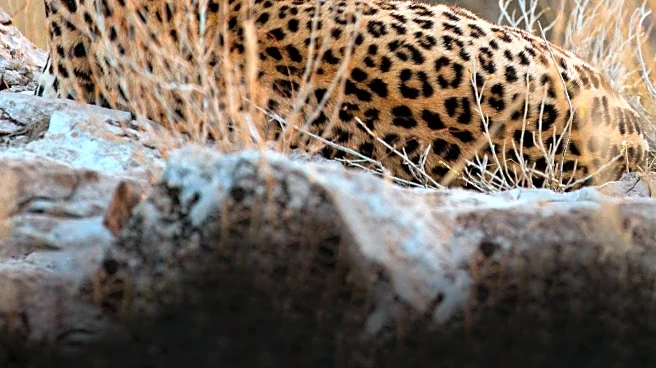What's Happening?
Amos Nachoum, an award-winning Israeli wildlife photographer, has captured images of a rare black leopard and her two spotted cubs in Kenya's Laikipia savanna. This sighting is significant as it marks the first known instance in modern history of a black leopard mother successfully raising two spotted cubs. Nachoum, who has spent five decades photographing nature, spent over two weeks in the savanna to document this rare event. The black leopard, named Giza, and her cubs, Amos and Dhaha, were tracked with the help of local Maasai guides. Black leopards are rare in Africa due to a genetic condition called melanism, making this sighting particularly unique.
Why It's Important?
The documentation of the black leopard and her cubs by Nachoum highlights critical conservation issues. The rarity of such sightings underscores the challenges faced by wildlife due to habitat loss, climate change, and human expansion. Nachoum's work aims to raise awareness and inspire action to protect wildlife, emphasizing the need for conservation efforts to ensure future generations can experience these animals beyond photographs. His mission is to combat the illusion of abundance created by the proliferation of wildlife images, which often masks the reality of declining animal populations.
What's Next?
Nachoum plans to continue his conservation photography efforts with upcoming projects focused on photographing the clouded leopard in Malaysia and tracking the endangered Ethiopian wolf in Africa's highlands. These endeavors aim to further raise awareness about the plight of endangered species and promote conservation efforts globally.
Beyond the Headlines
Nachoum's work not only captures stunning wildlife images but also serves as a poignant reminder of the environmental challenges facing the planet. His emphasis on the illusion of abundance in wildlife imagery calls for a deeper understanding of the urgent need for conservation. By documenting rare species, Nachoum hopes to inspire curiosity and concern for wildlife preservation.










